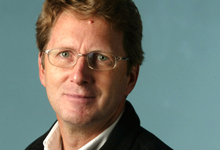By Kelly Egan
The Ottawa Citizen
July 8, 2009
http://www.ottawacitizen.com/life/Borne+case+cuts+deepest+diocese/1769165/story.html
 |
| Kelly Egan |
Police receive new complaint against Pembroke monsignor
Of the 52 priests listed in the clerical directory at the Archdiocese of Pembroke, four are conferred the honorary title of monsignor.
One is retired. One is serving a jail term. One has just been charged with sexual assault.
These are, indeed, trying times for Roman Catholics in the upper Ottawa Valley.
Nor is it over. The OPP said Tuesday that new information, in the form of a fresh complaint, had been received in the ongoing matter of Msgr. Robert Borne.
This is the case that has cut the deepest.
Msgr. Borne, 60, was charged in April with gross indecency, indecent assault and breach of trust in connection with three alleged victims between 1977 and 1995.
He was not just another priest.
Part of a well-known Pembroke family, Msgr. Borne was sometimes called the bishop's right-hand man.
For many years, he was the parish priest at St. James Church in Eganville, taking over at the end of 1995 in the aftermath of a terrible fire, a seminal event in the life of the village.
As part of his duties, he was also pastor for a mission church, Nativity of Mary, in Golden Lake.
He later took over a small parish in Cormac, also helping to organize the annual pilgrimage to a shrine dedicated to St. Ann every July. It attracted hundreds and was often featured on the front pages of weekly newspapers.
Msgr. Borne also served as a bishop's assistant and with the chancery office in Pembroke.
All of which to say this: As a cleric, he was here, there and everywhere in the religious life of Renfrew County.
And he is accused of breaking trust in a way that shakes the foundation of people's faith.
One would have thought it would be an opportunity for Bishop Michael Mulhall to address the parishioners of St. James -- indeed, all Renfrew County Catholics -- and the broader community.
He has chosen not to. Instead, early on, he released a prepared statement.
"As Bishop of the Diocese of Pembroke, I wish to express my deep concern, and that of the diocese, for the people who have brought forth allegations against Msgr. Borne. Our commitment is to work in an open and cooperative way with the civil authorities as they endeavor to unfold the truth. Many persons are deeply troubled by these events and we will do all we can to express a spirit of honesty and compassion to all concerned.
"Our mission as a church is to build a supportive community. We wish to allow this mandate to inspire us as to how we can assist all persons affected by these matters."
As recently as Tuesday, he has chosen not to comment. This is an unwise option, and here's why.
Setting aside Msgr. Borne's matter, history has taught us that secrecy is a big part of these cases. Victims take a long time to come forward. There is guilt and shame, misplaced. So often, the church knew something.
When was the last time you heard a bishop say publicly, in effect: "We messed this up, in a major way. We broke a sacred trust. Any other victims, please come forward. All we can do is try to make it right"?
Instead, with rare exceptions, there is silence.
Rob Talach is a lawyer in London, Ont., with extensive experience in dealing with the victims of abuse at the hands of clerics.
He represents 15 victims of Msgr. Bernard Prince, 73, a priest attached to the Pembroke diocese who was sentenced to four years in prison in January 2008. He was convicted of molesting 13 young boys over a 20-year period.
Talach says there is a disconnect between how the church reacts in a pastoral setting to its parishioners and how the institution reacts to allegations -- criminal or civil -- of abuse. "If I sued IBM, I'd probably get about the same reaction as when I sue the church."
He agreed that bishops have many options in reaching out to Catholics without jeopardizing criminal cases. "I don't know about this bishop, but generally, they haven't handled it very effectively."
The loss of trust is at the heart of these cases, Talach says. It is a common theme among victims.
"The breach of trust is one of the most paramount things. That is a very difficult thing to get through life with," he said. "You don't trust other people at all. Your personal relationships are impacted, your work, your education is affected. They clearly lose their belief in a higher being."
Trust is a thing built brick by brick. It doesn't happen overnight, though it can be lost that quickly.
But, surely, the first step in rebuilding is communicating, not hiding behind thick stone walls.
Contact Kelly Egan at 613-726-5896 or by e-mail at kegan@thecitizen.canwest.com
Any original material on these pages is copyright © BishopAccountability.org 2004. Reproduce freely with attribution.